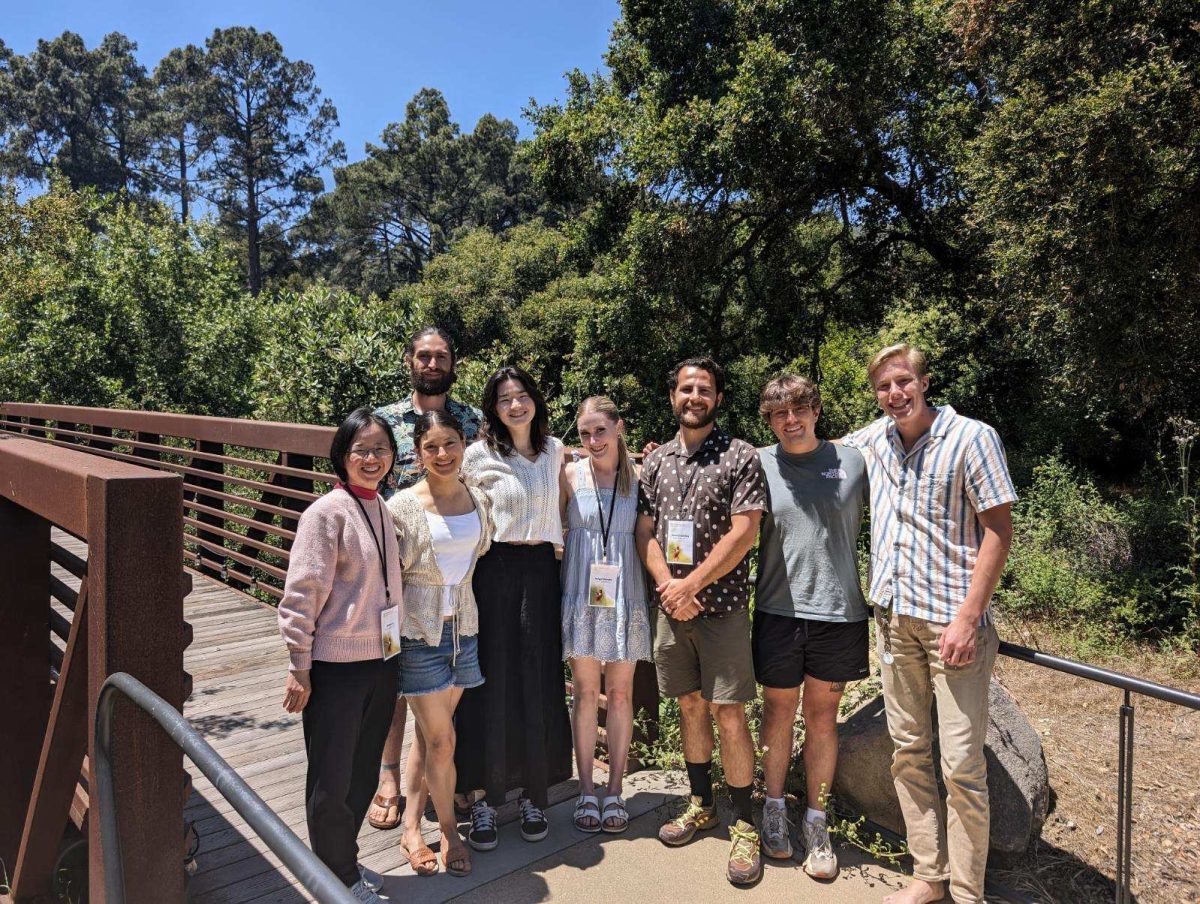In June, 2024, a team of Biola students and faculty attended the “Faith.Climate.Action” workshop at Westmont College in Santa Barbara. Among them were: Kevin Browning, co-author and professor of environmental science; Jessica Lu, professor of chemistry; Thomas Rahkola, co-authoring student; and five other Biola students. The team spent the week learning about responding to God’s call for environmental stewardship. They considered ways to invite Christian communities into building sustainable campuses and preparing students for lives that honor God’s creation. This question has become especially relevant and difficult given our present-day environmental crisis.
A LOCAL & GLOBAL IMPACT
To the untrained eye, the impacts of environmental degradation may go unnoticed here in Southern California. Other than hotter, drier days, an ever-present drought, more frequent wildfires and rising energy prices, it is easy to believe that our day-to-day lives are relatively unchanged. However, scientific data over longer time scales show that a negatively impacted climate puts our local communities at risk for energy insecurity, rising costs of necessities, economic instability, a climate-related worsening refugee crisis, health issues and increased severity of wildfires, drought, flooding and other extreme weather events.
While the environmental crisis may not yet be a pressing concern for many, climate change has become an immediate threat to our brothers and sisters around the world who face exacerbated humanitarian crises due to environmental degradation.
For example, the Pacific island nation of Tuvalu is projected to be uninhabitable by the end of this century due to sea level rise. As a result, their government is investing heavily in training the population in trade work so their citizens will be more desirable as refugees to neighboring nations.
In other parts of the world, farmers face unpredictable weather patterns that escalate poverty and food insecurity. Increased flooding, like that of India’s Brahmaputra River, forces rural farmers to routinely evacuate their homes and source of livelihood.
In our own backyard, the United States Department of Defence acknowledges climate change as a “national security priority.” Extreme weather events, like recent hurricanes Helene and Milton, have become increasingly destructive as our warming oceans and atmosphere fuel storms, while rising sea levels worsen the impacts of storm surges.
SEEKING COMMON GROUND
Despite a 97% global scientific consensus on the prevalence and severity of anthropogenic (human-caused) climate change, the issue has become politically polarized in recent years. This has contributed to a stigma amongst Christians against integrating environmental care with our faith. In 2023, Pew Research released a nationwide study showing that Republicans and Democrats have diverged even further in the last decade over their concern about climate change. If we as Christians allow ourselves to be guided by our political identities rather than our new life in Christ, we risk neglecting an essential aspect of our faith.
Both the wisdom found in the Bible and the wisdom of God’s creation provide us a foundation on which to build an environmental ethic. In the Old Testament, God guided the early Israelites by commanding them to let the land rest and to give it fair treatment. When the hearts of God’s people went astray, the land was wrought against them. The biblical text from Genesis to Revelation reveals to us the importance of considering ourselves a part of the natural world. We also realize that our God-given responsibility to care for the Earth is conjoined with our dependence upon our common home as the source of God’s provision.
We exist on God’s Earth as part of a finely-tuned ecological system. John Muir, American naturalist and father of the US national parks, once said, “When one tugs on a single thing in nature, he finds it attached to the rest of the world.” From the lush vibrancy of the Amazon Rainforest to the teaming Great Barrier Reef and the diverse flora and fauna of the California chaparral ecosystems, both ecologists and weekend hikers are struck by the undeniable evidence of God’s presence in the intricate tapestry of creation.
AMBASSADOR OF CHRIST
Being faithful to the call of loving our neighbor necessitates that we questions like these:
- How do we confront the consequences of neglectful stewardship that affect our fellow humans around the world?
- In the pursuit of faithfulness to God’s intention for humanity, what immediate gratifications are we willing to sacrifice for the greater good of loving others and securing a resilient future for our communities?
- How can we re-enter into the community of God’s creation in such a way that we would care for the plants and animals that we have been charged to steward?
- How would Christ’s love emanate through Biola if we proudly took strides to integrate environmental stewardship in our classes, chapels, conversations, and conferences?
As many panics worldwide, we seek a biblically grounded response centered on faith and hope. In a time when the world is increasingly aware of the Earth’s groaning, the church can speak God’s love into despair. This article from Christianity Today argues that the realities of climate change are an opportunity for Christians to bring the realities of God’s Kingdom to light in the world today.
Creation care is a growing priority amongst Biola students and faculty. Imagine the increased impact Biola would have if an ethic of stewardship was more effectively integrated into the teachings and discussions in our classrooms, chapels, and conferences. Biola would become a place where students leave equipped with an understanding of how they can live out environmental stewardship in their daily lives and careers. In a world trembling with anthropogenic climate change and environmental degradation, may bring the Kingdom of God to the here and now by taking up our blessed role as stewards of creation. here and now.






